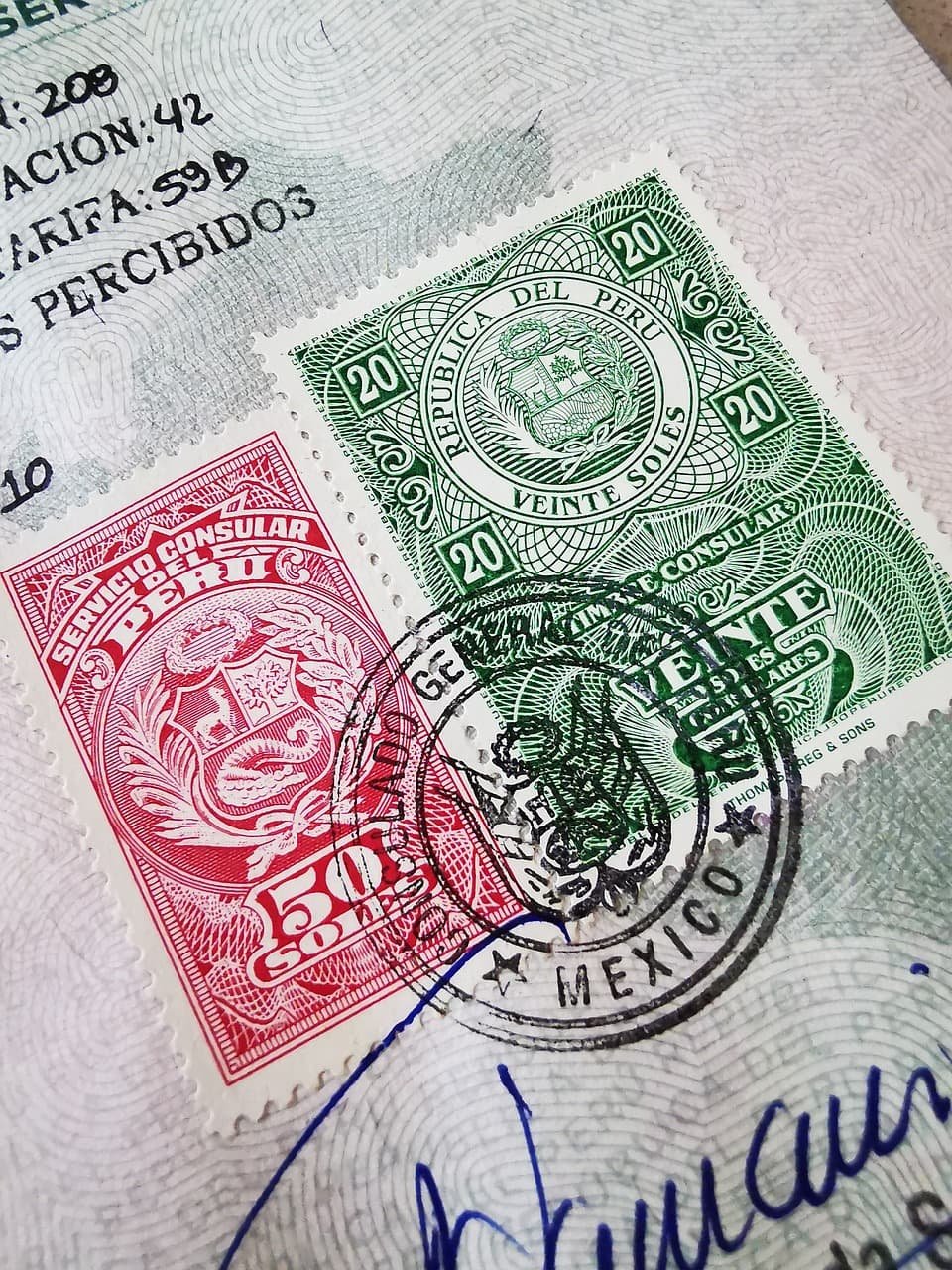You might be interested in who need a visa to enter Portugal if you’re concerned about how your nationality influences your travel or relocation to Portugal. No doubt, Portugal is a destination that enchants travelers with its rich history, captivating landscapes, and warm hospitality.
But beyond the charm of a vacation destination, Portugal has become an increasingly attractive option for those seeking a permanent change of scenery. Today, we’ll delve into the allure of Portugal, first exploring its captivating factors that draw in tourists, and then diving into the intricacies of obtaining the appropriate visa for a smooth transition to long-term residency. So, let’s talk about who need a visa to enter Portugal.
Who Need a Visa to Enter Portugal?
Like many other EU countries, Portugal has a two-tier immigration and visa system. So the rules you face depend on whether you are an EU/EFTA citizen or from other countries.
People Looking to Tour, or Conduct Business in Portugal
Citizens from diverse countries require a visa to visit Portugal for short stays. This includes several countries like Nepal, Pakistan, India, and South Africa. The most common short-stay visa in Portugal is the tourist visa.
This allows visitors to tour Portugal for about 90 days. To see the complete list of countries requiring a visa, the Portuguese Ministry of Foreign Affairs website has a detailed list.
Beyond that, there’s a short-stay seasonal work visa for up to 90 days. People looking to work in agriculture, hospitality, food, retail or construction often go after these visas.
Overall, most people acquire the short-stay visa for the following purposes:
- Tourism
- Business
- Family visit
- Airport transit and other stays in Portugal that are seasonal or temporary.
Regardless of your reason for going after the short-stay visa, you’ll need to provide the following documents for your application:
- Passport photo
- Health insurance
- Valid passport
- Proof that you can support yourself financially for the duration
- Return ticket reservation.
- Accommodation details
Additionally, you’ll need to provide the work contract or work offer if you are going after the seasonal work visa.

Fees for short-stay visas
Generally, short-stay visas cost about €80. Children over six and under 12 pay €40. Some other countries also require an additional service fee of no more than half the standard visa cost.
Nationals of countries who share visa facilitation agreements, however, pay a reduced fee of €35. These include countries like Macedonia, Moldova, Montenegro, Serbia, Albania, Armenia, Azerbaijan, Bosnia, Georgia and Ukraine.
Visa fee exemptions
Some people can get a visa without paying any fees. This includes:
- Children under six
- Students, teachers, and postgraduates who are traveling for educational or training purposes
- Researchers traveling for scientific purposes
- Representatives of nonprofits under the age of 25.
- Family members of EU/EFTA nationals and UK nationals under the Withdrawal Agreement.
Some non-EU countries however have visa-free access
That said, some countries have an agreement with Portugal (and the European Union). This means citizens from these countries can enter Portugal without a visa for their short stay.
This includes:
Citizens from the countries Albania, Andorra, Antiqua and Barbuda, Argentina, Australia, Bahamas, Bosnia and Herzegovina, Brazil, Brunei Darussalam, Canada, Chile, Colombia, Costa Rica, Dominica, El Salvador, Georgia, Grenada, Guatemala, Holy See, Honduras, Israel, Japan, Kiribati, Malaysia, Marshall Islands, Mauritius, Mexico, Micronesia, Moldova, Monaco, Montenegro, New Zealand, Nicaragua, North Macedonia, Palau, Panama, Paraguay, Peru, Samoa, San Marino, Serbia, Seychelles, Singapore, Solomon Islands, South Korea, St Kitts and Nevis, St Lucia, St Vincent and the Grenadines, Timor-Leste, Tonga, Trinidad and Tobago, Tuvalu, Ukraine, United Arab Emirates, United Kingdom, United States of America, Uruguay and Venezuela
That said, after staying 90 days, travelers from these areas must leave the Schengen Area for at least 90 days before re-entering. Nevertheless, stays of more than 90 days require a visa.
Visa-Free Access is Changing to Etias Scheme in 2024
The EU is making changes to how countries with visa-free access enter the region. In mid-2024, a new visa-waiver program called the ETIAS (which stands for European Travel Information and Authorisation System) is coming into place. The program was originally scheduled for May 2023, but was pushed to an unconfirmed date in 2024.
So this program will replace visa-free access. With this scheme, the countries that previously had visa-free access will now require the ETIAS authorization.
Essentially, travelers from these countries must fill out an online form, submit passport info, and pay a small fee (around €7 per person).
After this, they will receive an official authorization via email. The program suggests that most authorizations will happen within an hour. Furthermore, the usual rules will still apply as the stay using this authorization is 90 days in 180 days.

Travel is, however, free if your country belongs to the Schengen area
Portugal is part of the Schengen Area. This is a bloc of 27 European countries to which their citizens and other people can move freely between each of them. So citizens from this bloc do not need a visa to visit Portugal for a short stay. However, if they were staying longer than three months, they must request a registration certificate.
People looking to have a working holiday in Portugal
Portugal has a dedicated working holiday visa program with several countries. This is also called a Youth Mobility visa. This program allows citizens between the ages of 18 and 30 to have a working holiday in Portugal. This working holiday means they can work for up to six months, but spend up to a year in Portugal as a tourist.
The visa program caters to citizens from Argentina, Chile, Japan, New Zealand, South Korea, Canada, Peru, and the USA. Besides the visa, you must also show your return ticket and adequate proof of funds. Furthermore, the visa cannot be extended. And it’s only granted to one person at a time.
Most people access this working holiday visa (also called the youth mobility) visa include:
- Study
- Internships
- Training
- Volunteering
- Cultural exchange.
People looking to relocate to Portugal for a considerable time
So, who need a visa to enter Portugal? Most nationals from other countries need a visa to enter Portugal, if they are staying for more than 90 days. Now let’s talk about the other categories of visas you can visit or relocate to Portugal for a given time.
Temporary stay national visas
When you wish to stay in Portugal for longer than 90 days but up to a year, you can get the Portugal Temporary Stay visa. EU/EFTA nationals (and their family members) don’t need this visa. For the entire 1 year, you can enter the country. Beyond that, if your country has a visa-free agreement with Portugal, you’ll still need a visa for stays longer than 90 days. There are also different types of Temporary stay visas.
It includes:
- Self-support visa
- Youth mobility visa
- Medical treatment visa
- Religious purposes visa
- Professional training or internship visa
- Study visa
- Temporary work visa.
Temporary work visa
The temporary work visa allows you to work in Portugal for a given period between 90 days and one year. The temporary work visa category spreads across:
- Long-term seasonal work
- Self-employed or freelance work
- Scientific or academic work
- Amateur sports activity
- Any other skilled work.

Long Stay National Visas (Residency Visas)
Long-stay visas are also called residency visas. Non-EA/EFTA nationals need to apply for this visa if they want to stay in Portugal for more than a year. It also applies even if your country has a visa-free agreement with Portugal. Applying for this visa demands that you apply for a residency permit with the Portuguese Immigration and Borders Service (SEF). You’ll need to also prove that you can financially support yourself during your stay. This could be through employment, or having the right amount of money saved away. Here are the long-stay national visas you can access in Portugal:
- Portugal Golden visa. The Golden Visa was used to allow real estate investments. But today, the real estate aspect of that scheme has been closed indefinitely. Other aspects of the Golden visa allow you to invest in the Portuguese Investment Fund, capital transfer to Portugal, Job creation or donation to research, or preserve the national heritage in Portugal.
- Portuguese D7 income visa. This is also called the Retirement or Passive Income Visa. It allows you to relocate to Portugal as long as you can show that you receive reasonable passive income to live up to the Portuguese minimum wage. Presently, it’s over €8,460 per year. Your spouse must however show having 50% of that amount and for one child, you need an additional 30%.
- D2 Entrepreneur Visa. This visa isn’t as known as the Portugal Golden Visa and the Portugal D7 Visa. This, however, is the right part for entrepreneurs, freelancers, or independent service providers. In this case, you need to show that you have a viable business plan evaluated in terms of technological, economic, or cultural impact. You must also show having enough saved up to sustain yourself while living in Portugal for the year.
- Digital nomad visa: This is a recent development in Portugal. You’ll need to show proof of your active income and an employment contract from a foreign employer. However, you must show that your monthly earnings are about four times the Portuguese minimum age.
Factors influencing visa application decisions
Depending on your unique circumstances, you probably qualify for about two visa types. But then the choice for your visa application should be made cautiously.
You should also consider the perks and possible future you want when picking for a visa. For instance, the Portugal Golden visa, Portugal D7 visa, and Portugal D2 visa all have incentives under the non-habitual resident (NHR). This means for a considerable time, such as five years:
- you can be eligible to not pay any tax on pensions, rental income, real estate gains, and income from non-Portuguese sources if your country has a Double Taxation Agreement (DTA) with Portugal.
- Or you might pay a flat rate of 10% on retirement savings and insurance if your pension income is taxed in Portugal.
- Or your income from high-value-added activity. This includes employment and self-employment income from activities of artistic, scientific, or technical character performed in Portugal. In this case, you pay the same income tax as other residents for other types of domestic income
- Or you’ll only be taxed on your global income after the first 10 years of residence
- Foreign dividends, interest, rent, and property capital gains are exempted
- You will not pay wealth or inheritance tax.
Besides taxation, you should also consider if that visa choice counts towards becoming a permanent resident. This is super important if you plan to move to Portugal indefinitely. Here’s a detailed guide on getting permanent residency in Portugal.
Wrapping up
Who need a visa to enter Portugal? The bottom line is that you might need a visa to enter Portugal depending on your country and goals. Some people from certain countries can enter Portugal visa-free for short stays.
But you’ll need a visa for stays longer than 90 days. Here we’ve talked about all the different visa categories you need to consider to make the perfect choice.






